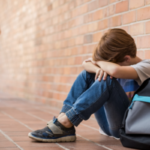Removal of Rights in NSW, An Exclusive Interview

The NSW Council for Civil Liberties has been at the forefront of the Australian civil rights movement since 1963. Over the last 50 years, they’ve been tireless in their fight against censorship, abuse of authority, and injustice within the legal system. In 2010, the group played a pivotal role in passing legislation which banned the re-introduction of capital punishment across Australia.
It was an unexpected defamation threat, addressed to one of his clients, that led Stephen Blanks, the group’s current president, to cross paths with the group. His client, an author, was being pursued by a Government department over allegations he had made in a recent book.
“I had a eureka moment and thought of the Council for Civil Liberties,” he said. Days later, the threat was withdrawn: “It was an absolutely stunning victory. From that moment on I was hooked on the idea of being able to achieve outcomes through ways other than straight law.”
Mr Blanks sat down with Sydney Criminal Lawyers® earlier this week, to discuss civil liberties, lockouts and the Government’s new anti-protest laws:
What do you see to be the biggest civil liberties threats in New South Wales at the moment, and what has the Council for Civil Liberties been doing to stop them?
Obviously counter-terrorism legislation is one of the biggest areas that the Council of Civil Liberties has been working on for the last year or two. This government has had several tranches of counter-terrorism laws, and the Council has spent a lot of time putting submissions against those and pointing out the infringements of civil liberties and human rights that they involve.
We’ve also been working on the Senate voting system reform, lobbying for optional preferential voting, which will hopefully become legislation this week. These reforms are very important from a democratic point of view, people are entitled to know where their vote is going, and to control where their vote is going to go. The current system just doesn’t allow that, people have no idea who they were actually voting for when they vote above the line.
Most recently, we’ve been working to protect the right to protest in New South Wales. This week, the Parliament is passing laws which are going to give police more powers to interrupt protests, and restrict the rights of protesters. Supposedly this has something to do with mining and coal seam gas exploration, but the police powers will go well beyond
In what ways are the ‘counter terrorism’ reforms an infringement on civil liberties?
On the counter terrorism side, there are very arbitrary laws which can lead to Australian citizens having their passports cancelled. More seriously, visa holders, who don’t have all the rights of protection that Australian citizens have, can their visas cancelled on the say-so of ASIO.
We’ve got cases where ASIO gave adverse security assessments and we’ve not heard any reasons. As a result, people go into detention with no real right to challenge the accusations against them.
The result is that families have been split up, people are going into detention for an indefinite periods of time, and they’re being not told why. You can’t imagine a more serious breach of a more fundamental right than the right to liberty.
And why is the Council concerned about the new anti-protest legislation?
The new protest laws have got some very disturbing aspects. I think that the law is being infected with ideas that came in with the counter terrorism laws. It’s always been the case that police have been able to prosecute people who attempt to commit a criminal offence, but these new laws go further and criminalise having an intention to commit a criminal offence. If the police think that you’ve got an intention of committing a crime as part of a mining or a coal-seam gas protest, then they can charge you. The idea that you can be convicted of a criminal offence not on the basis of what you intend is just going too far.
Do you see the new lockout laws as an infringement on civil liberties in NSW?
The ‘lockout laws’ are a very interesting example of how there are can be more than one legitimate view on a civil liberties issue. We have people on our committee who are very concerned about the level of violence that occurs on Sydney’s streets, and the lockout laws have reduced that.
On the other hand, there are quite legitimate arguments that the laws have gone too far. To the extent that they’ve reduced violence, that’s been an indirect effect. You could reduce street violence from a range of other measures that are less draconian than the absolute lockout laws that have been imposed.
We have an action group in Civil Liberties which is preparing a submission for the various inquiries that are on at the moment, they’re going to argue for a rollback of the lockout laws, and for a balance that achieves street safety without having these restrictions
What do you think will be the Council’s main focus in the coming year?
Over the next 12 months we’ve got an election coming up that might seriously affect the direction of future legislation, and what issues are to be addressed. Hopefully the spate of counter terrorism laws is not going to continue after the next federal election, I think they’ve done enough in that area.
The Council will have to work more on the asylum seeker issue. There are serious problems with people’s treatment in detention, both onshore and offshore. We have to deal with ASIO and the way in which it makes decisions that about people’s lives, with absolutely no unaccountability.
One of the interesting aspects of being involved in civil liberties is that you never really know what the next issue is going to be. Some issues are going to be perennials, and some just pop up seemingly out of nowhere.
For example, on the privacy front there are some opportunities to work on the way in social media sites work. There was a case in Europe last week, where the court held that the ‘like button’ on Facebook breaches European privacy laws, because of the way it’s treated as data collection. That’s an interesting idea and I don’t think anyone in Australia has been talking about that being a privacy problem. Maybe we’ll be able to draw some attention toward that in the coming months.
Thank you for your time






